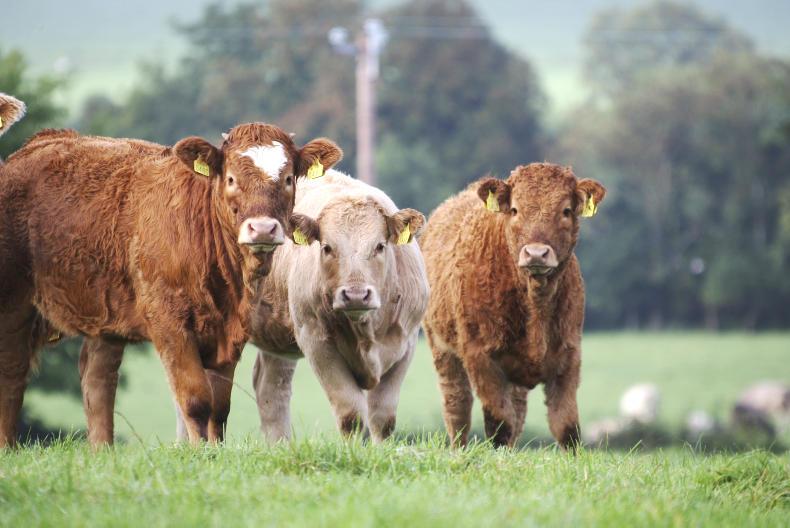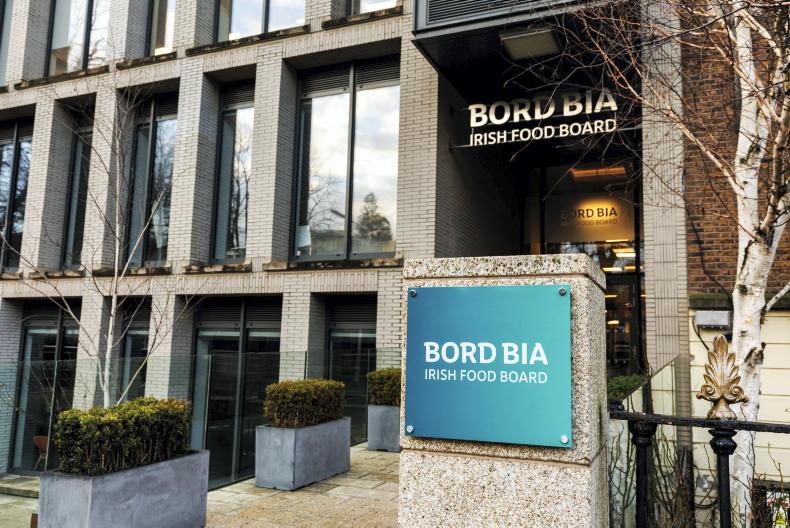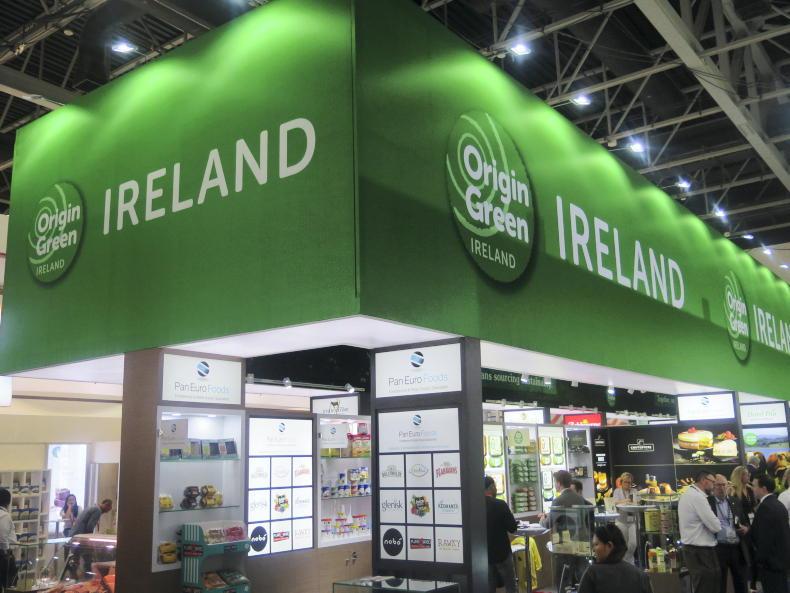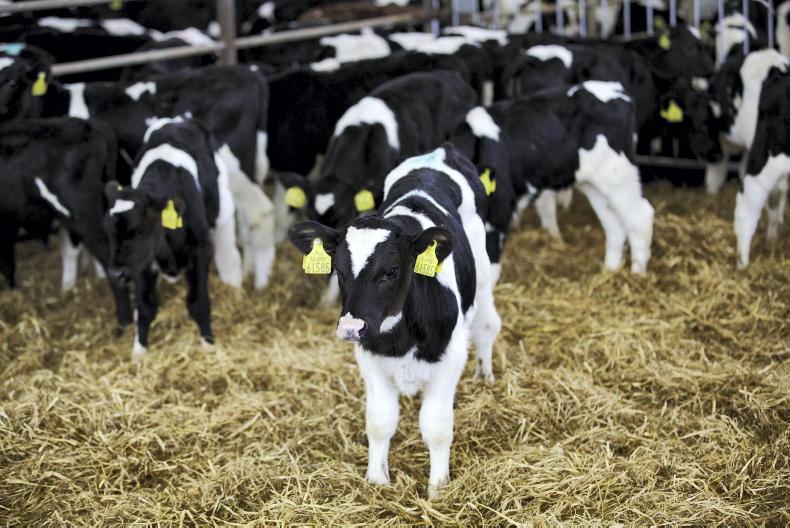There was little progress made at the Beef Taskforce meeting on Thursday, with studies on beef sector transparency yet to be finalised.
While Minister for Agriculture Michael Creed said that “substantial progress” has been made in the delivery of commitments under the beef sector agreement to date, he said work on other actions is ongoing.
“Work on the actions to be implemented under the beef sector agreement has been ongoing throughout the pandemic and I am pleased to see that engagement between stakeholders can still progress notwithstanding the current restrictions on physical meetings.
“I am encouraged to hear of the progress on the market transparency studies by Grant Thornton, as transparency is essential to maintaining mutually beneficial relationships across the supply chain to secure the future of Irish beef,” he said.
Thursday’s meeting saw Bord Bia give an update on current market situation and provide an update on the progress of the draft application to the European Commission for PGI status for Irish grass-fed beef.
At the taskforce meeting, IFA president Tim Cullinan questioned consultants Grant Thornton who were retained by the Minister to investigate the price composition of the total value of the animal, including the fifth quarter, along the supply chain.
The Minister for Agriculture needs to be strong and bluntly tell the beef factories and the retailers they must co-operate fully
He said the success or failure of this investigation will depend on the data from the factories and retailers.
“The Minister for Agriculture needs to be strong and bluntly tell the beef factories and the retailers they must co-operate fully and provide all the required price and margin information for this important investigation,” he said.
Consultation
Cullinan also raised issues on the Bord Bia grass-fed and PGI proposals around the lack of proper consultation with IFA and farmers and the need for more engagement.
IFA also raised the exclusion of young bulls from eligibility for grass-fed and the confusion over excluding the first nine months of age as key issues.
Cullinan said farmers want to know how the market benefits from grass-fed and PGI will be passed back to farmers and if there will be a price premium.
“Farmers want to know the details around the ownership of the grass-fed and PGI initiatives. Who will own and who control the brands?”
ICSA
ICSA president Edmond Phelan insisted a suckler-based application for EU PGI IS the only realistic option at the meeting.
“ICSA wants to see segmentation of the market whereby suckler beef is developed as a special high-value product. Any proposal that excludes suckler young bulls but would include 10-year-old dairy cows is unworkable,” he said.
Phelan said there were many questions yet be to be answered around the ownership rights associated with a suckler brand or PGI status, given that it depends on farmers’ data and work.
“ICSA is insisting that primary producers must own the PGI status; Bord Bia cannot own it if they are the auditor. The whole concept of PGI means it cannot be owned by multinational industry,” he said.
In relation to the Grant Thornton report, Phelan said that while it is awaiting the report, the ICSA has no doubt that the Competition and Consumer Protection Commission (CCPC) is not fit for purpose.
The ICSA also raised the issue of the price differential between cattle sold in the north of Ireland as opposed to the Republic.
“There can be no justification for Irish producers being €150/head down on their northern counterparts,” Phelan said.
Macra
The gap in cattle prices was also addressed by Macra president Thomas Duffy, who called on processors to immediately address the price differential paid to farmers.
“Farmers who are in a position to send livestock to Northern Ireland are receiving a higher price, but the question must be asked, how can the same processors pay a higher price for an hours additional travel?” Duffy said.
The president of the ICMSA, Pat McCormack, said that on the basis of the presentation by an Bord Bia on the beef market outlook, the cattle number situation in the second half of 2020 is certainly grounds for optimism for beef producers.
Bord Bia confirmed that as of 1 May 2020, the number of male cattle over 12 months of age is 68,000 less than 1 May 2019 and in the case of beef female cattle, 25,000 less, he said. In total, this is 93,000 less cattle over 12 months of age for the rest of this year.
“Cattle supplies should be tighter than 2019, providing a level of advantage for the primary producer. In addition, while beef demand has taken a hit due to COVID-19, with restrictions being relaxed across the EU, there is certainly optimism that demand levels will recover over the rest of the year providing a reasonable market outlook for beef that has to be translated into better prices for farmers.
“In addition, there appears to be opportunities for live exports over the remainder of the year and resources will have to be allocated to support this hugely important element of competition. In the short term, it is quite clear that beef prices have moved forward in our main UK market, and our prices must follow suit immediately,” McCormack said.
In relation to the PGI proposal, McCormack said that it was confirmed at the taskforce that no additional requirements will be placed on farmers in relation to this application; no new rules or regulations.
Read more
Vibrant autumn-born weanling trade in Caherciveen
Farmer wins ANC appeal on stocking rates
US beef price falls as fast as it rose
There was little progress made at the Beef Taskforce meeting on Thursday, with studies on beef sector transparency yet to be finalised.
While Minister for Agriculture Michael Creed said that “substantial progress” has been made in the delivery of commitments under the beef sector agreement to date, he said work on other actions is ongoing.
“Work on the actions to be implemented under the beef sector agreement has been ongoing throughout the pandemic and I am pleased to see that engagement between stakeholders can still progress notwithstanding the current restrictions on physical meetings.
“I am encouraged to hear of the progress on the market transparency studies by Grant Thornton, as transparency is essential to maintaining mutually beneficial relationships across the supply chain to secure the future of Irish beef,” he said.
Thursday’s meeting saw Bord Bia give an update on current market situation and provide an update on the progress of the draft application to the European Commission for PGI status for Irish grass-fed beef.
At the taskforce meeting, IFA president Tim Cullinan questioned consultants Grant Thornton who were retained by the Minister to investigate the price composition of the total value of the animal, including the fifth quarter, along the supply chain.
The Minister for Agriculture needs to be strong and bluntly tell the beef factories and the retailers they must co-operate fully
He said the success or failure of this investigation will depend on the data from the factories and retailers.
“The Minister for Agriculture needs to be strong and bluntly tell the beef factories and the retailers they must co-operate fully and provide all the required price and margin information for this important investigation,” he said.
Consultation
Cullinan also raised issues on the Bord Bia grass-fed and PGI proposals around the lack of proper consultation with IFA and farmers and the need for more engagement.
IFA also raised the exclusion of young bulls from eligibility for grass-fed and the confusion over excluding the first nine months of age as key issues.
Cullinan said farmers want to know how the market benefits from grass-fed and PGI will be passed back to farmers and if there will be a price premium.
“Farmers want to know the details around the ownership of the grass-fed and PGI initiatives. Who will own and who control the brands?”
ICSA
ICSA president Edmond Phelan insisted a suckler-based application for EU PGI IS the only realistic option at the meeting.
“ICSA wants to see segmentation of the market whereby suckler beef is developed as a special high-value product. Any proposal that excludes suckler young bulls but would include 10-year-old dairy cows is unworkable,” he said.
Phelan said there were many questions yet be to be answered around the ownership rights associated with a suckler brand or PGI status, given that it depends on farmers’ data and work.
“ICSA is insisting that primary producers must own the PGI status; Bord Bia cannot own it if they are the auditor. The whole concept of PGI means it cannot be owned by multinational industry,” he said.
In relation to the Grant Thornton report, Phelan said that while it is awaiting the report, the ICSA has no doubt that the Competition and Consumer Protection Commission (CCPC) is not fit for purpose.
The ICSA also raised the issue of the price differential between cattle sold in the north of Ireland as opposed to the Republic.
“There can be no justification for Irish producers being €150/head down on their northern counterparts,” Phelan said.
Macra
The gap in cattle prices was also addressed by Macra president Thomas Duffy, who called on processors to immediately address the price differential paid to farmers.
“Farmers who are in a position to send livestock to Northern Ireland are receiving a higher price, but the question must be asked, how can the same processors pay a higher price for an hours additional travel?” Duffy said.
The president of the ICMSA, Pat McCormack, said that on the basis of the presentation by an Bord Bia on the beef market outlook, the cattle number situation in the second half of 2020 is certainly grounds for optimism for beef producers.
Bord Bia confirmed that as of 1 May 2020, the number of male cattle over 12 months of age is 68,000 less than 1 May 2019 and in the case of beef female cattle, 25,000 less, he said. In total, this is 93,000 less cattle over 12 months of age for the rest of this year.
“Cattle supplies should be tighter than 2019, providing a level of advantage for the primary producer. In addition, while beef demand has taken a hit due to COVID-19, with restrictions being relaxed across the EU, there is certainly optimism that demand levels will recover over the rest of the year providing a reasonable market outlook for beef that has to be translated into better prices for farmers.
“In addition, there appears to be opportunities for live exports over the remainder of the year and resources will have to be allocated to support this hugely important element of competition. In the short term, it is quite clear that beef prices have moved forward in our main UK market, and our prices must follow suit immediately,” McCormack said.
In relation to the PGI proposal, McCormack said that it was confirmed at the taskforce that no additional requirements will be placed on farmers in relation to this application; no new rules or regulations.
Read more
Vibrant autumn-born weanling trade in Caherciveen
Farmer wins ANC appeal on stocking rates
US beef price falls as fast as it rose









SHARING OPTIONS